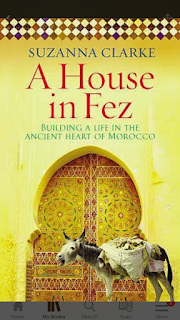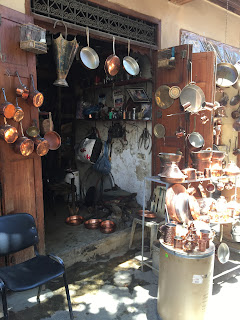I have been thinking of using Book Riot's reading log this year as well. I mean, it's not like I don't have plenty of time at my computer right now. ;)
There was also a great episode of What Should I Read Next about how people track their reading. I was listening to it while I was driving so I need to go back and give it a re-listen and take some notes to decide if I want to try any of those things. For now, though, Goodreads has been my way to go.
Recently I listened to My Life With Bob: Flawed Heroine Keeps Book of Books, Plot Ensues by Pamela Paul. I did this as an audiobook. (Side note: A lot of times when I'm listening to a book while I'm hiking, I associate certain spots on the trail with parts of the book. With this one, I know that when she was talking about the trip she and her sister took to Auschwitz, I was hiking toward Pryden Falls in the Paugussett State Forest in Newtown, CT.) This book is a memoir about Pamela's life growing up as a reader and becoming the editor of the New York Times Book Review. She talks about her childhood, her family life, and her travels through Europe and Asia before beginning her career in earnest. It was refreshing, honestly, to read about the ways it went wrong and almost went wrong, because I know that when I've traveled by myself there have been some moments that in hindsight I really could have handled better! I'm glad we both ended up ok!
But through all of this, she has kept the same fat notebook chronicling all of the books she's read. She talks about how she was so protective of it and what happened when a boyfriend wanted to write his reading in it too. (How about get your own?) And I'm jealous because I didn't keep such a notebook! I I've gone into Goodreads at times and recorded books I know I read before I started using it. Part of it was for the thrill of list-making and part was sort of for record-keeping. ;) There's no way I'm going to remember everything I read in middle school but also I know that I read every Babysitters Club Book as soon as it came out, so if I look at the pub dates that will be easy to find! I can pinpoint a lot of books down to what grade I was in. I have a terrible short-term memory but lots of things from when I was a kid have stayed in there.
I give this book 5/5. I learned about it listening to the Well-Read Podcast. :) I also enjoy Pamela Paul's New York Times podcast!
![My Life with Bob: Flawed Heroine Keeps Book of Books, Plot Ensues by [Pamela Paul]](https://m.media-amazon.com/images/I/519uZvRX3BL.jpg)












